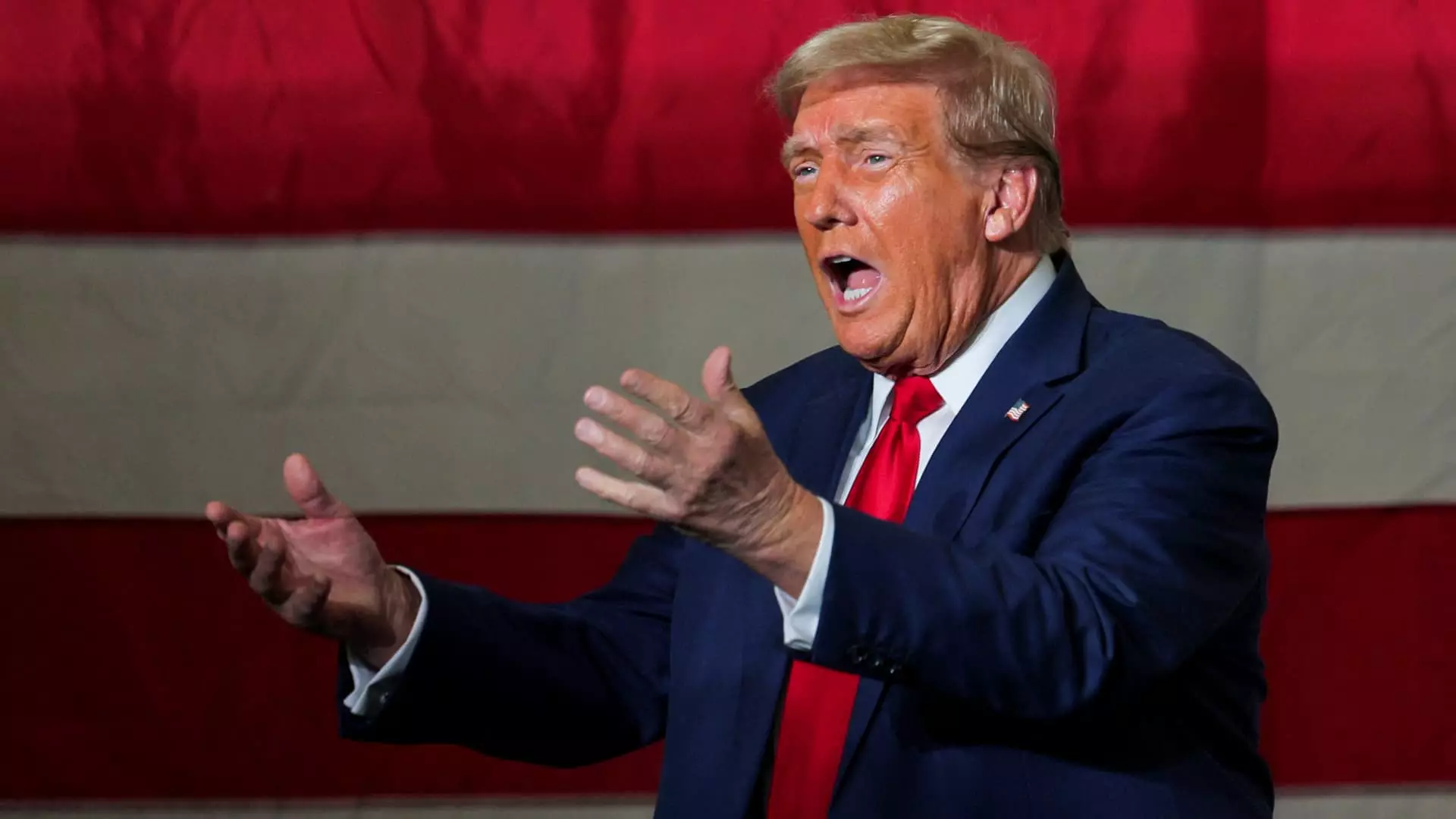The recent unsealing of Special Counsel Jack Smith’s redacted motion in the criminal case against former President Donald Trump has stirred a significant wave of public discourse. This 165-page document not only lays out substantial evidence addressing allegations of Trump’s attempts to overturn the 2020 election results but also reflects the intricate dynamics of legal frameworks, political ambitions, and the challenges facing democracy in the United States.
One of the key elements in the motion is its challenge to Trump’s assertion of presidential immunity regarding his alleged involvement in election interference. Trump’s legal team has argued that his actions fall under the designation of official conduct, thereby shielding him from prosecution. However, Smith counters this claim by suggesting that Trump’s actions were predominantly personal and did not constitute an official presidential role. This distinction plays a critical role in the legal proceedings, as it raises pivotal questions about the responsibilities and limits of presidential power.
The Supreme Court’s ruling, which implies some level of immunity for presidents, complicates matters further. Yet, Smith posits that Trump’s campaign to overturn the election transcended the bounds of official conduct. Instead, he labels the actions as a private scheme carried out in alliance with various co-conspirators. This framing not only lays a foundation for potential prosecution but also serves as a broader commentary on the accountability of public officials in democratic institutions.
The motion delineates specific instances where Trump and his associates allegedly attempted to disrupt the democratic process through fraud and deceit. One particularly illustrative example detailed involves a campaign employee at the TCF Center in Detroit following the election. Faced with unfavorable vote counts, this individual reportedly expressed a desire to “find a reason it isn’t” and to create anguish akin to the Brooks Brothers Riot of 2000. Such statements capture the alleged mindset among Trump’s inner circle during a critical phase of the electoral process, emphasizing a willingness to engage in unethical behavior rather than pursue legitimate avenues for addressing election-related grievances.
The intensity of these allegations prompts reflections on the ethical implications of political power. If officials prioritize personal or political victories over the democratic principles of transparency and fairness, the very fabric of democratic institutions is put at risk. The revelations suggest a chilling willingness among some political figures to exploit roles of power for personal gain, a disturbing reality for any functioning democracy.
A notable aspect of the filing is the role of former Vice President Mike Pence, who encountered his own challenges while navigating the tumultuous political landscape post-election. Not only did Pence face significant pressure from Trump to uphold dubious claims of voter fraud, but he also attempted to guide Trump toward acceptance of the election results. The filings highlight several exchanges between the two men, with Pence’s cautiously optimistic remarks juxtaposed against Trump’s dismissive attitudes toward both the election outcome and Pence’s suggestions.
This dynamic provides a fascinating lens through which to analyze political loyalty, accountability, and the function of advisory roles. While Pence attempted to maintain a semblance of loyalty, the details reveal an awkward balancing act between allegiance and the duty to uphold constitutional order. The scenarios paint a picture not merely of a political office in disarray but of the complex moral landscape navigated by leaders confronted with ethical dilemmas about their colleagues’ actions.
As the 2024 presidential election approaches, the continuing implications of these revelations cannot be overstated. Trump’s case underscores the broader narrative concerning the integrity of electoral processes, illuminating deep societal divisions and anxieties about future elections. Moreover, should Trump succeed in securing the Republican nomination and potentially the presidency, he would wield influence over the Department of Justice, including the capacity to dismiss ongoing investigations against him.
Such a scenario raises profound questions about the safeguards necessary to protect electoral integrity and the ramifications for U.S. governance. If unchecked, a precedent could emerge where political figures evade accountability for illegal actions under the guise of political maneuvering.
The unsealing of evidence against Trump has not only resurfaced longstanding concerns about election integrity but has also reignited vital discussions about power, accountability, and the fundamental principles that uphold democracy. As specifics of the case continue to unfold, it becomes increasingly essential for citizens, policymakers, and institutions to advocate for transparency and safeguard the core tenets of democracy. Balancing political ambition with ethical responsibility will be crucial to ensuring a government that serves the people’s interests rather than private agendas. In these tumultuous times, the resilience of democracy will depend on the vigilance of its citizens and the structures that hold power accountable.

Leave a Reply